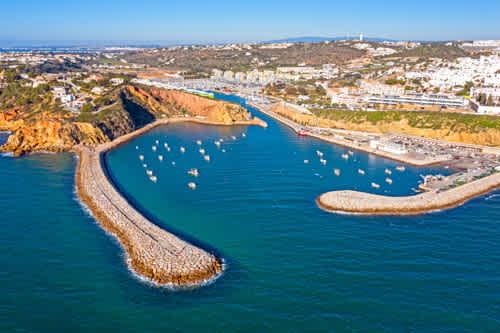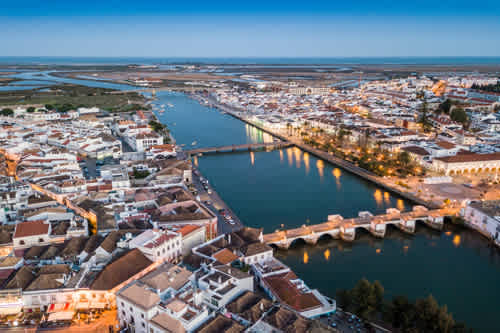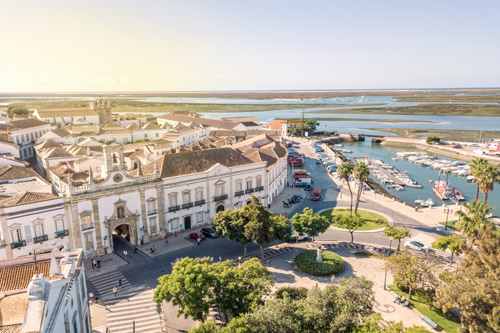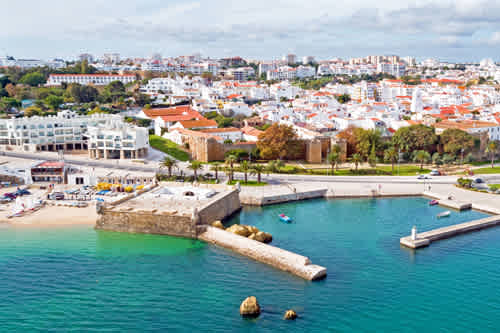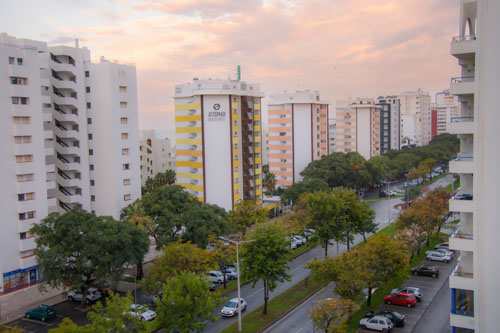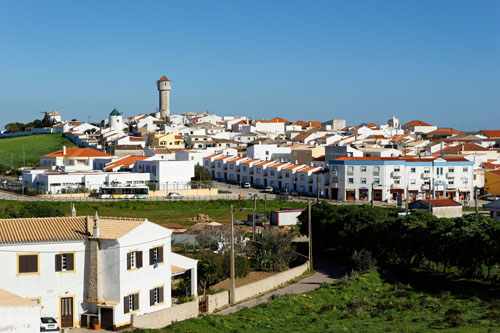About Algarve
Algarve is a great destination, with a welcoming vibe, offering fun in the warm sun, beautiful nature, history, and outstanding cuisine!
Algarve, the southernmost region of Portugal, was greatly influenced by the Moorish style, architecture, food, names, and Arabic words which are interspersed in the local dialect – and even the physical appearance its residents. In Algarve, the strong connection to the Moorish heritage is more obvious than in any other area of Portugal.
Algarve has become a popular tourist destination, largely due to its Mediterranean climate – in fact, within a generation, it has transformed from an agriculture and fishing-based economy to one of tourism and services.
The region extends approximately 96 miles along the coast and is famous for its spectacular cliffs, golden beaches, spectacularly colored bays, and deserted islands. There’s plenty of entertainment in Algarve, as well - seaside bars, clubs, golf resorts, and diving sites – and mouthwatering seafood and fish restaurants. But Algarve is not only about the surf, sun, and fun, it is also home to ancient villages, fortress towns, hills decorated with flowers and cork trees, and bird nesting areas.
The Phoenicians were the first to establish trading posts here 3000 years ago, followed by the Carthaginians and then the Romans. The Romans, who lived here for 400 years, grew wheat, barley, and grapes; they paved roads and built palaces. The Visigoths and the Moors followed the Romans and remained here for 500 years, naming the region El Garb al Andalus, which later evolved into Algarve. The flat-roofed buildings, which were used for drying almonds, figs, and corn, are a vestige of the Moorish heritage, and it was a period when trade flourished.
The golden age of Algarve was in the 15th century, when Prince Henry the Navigator established the School of Sagres in Algarve, a maritime school which assembled the best nautical minds in Portugal and encouraged innovation. Ships were built for exploratory voyages to Africa and Asia, and they set out from nearby Lagos. These were successful expeditions that turned Portugal into a maritime power.
Faro, Algarve capital, is a charming Portuguese city which is rich in culture, history, and interesting sites – some of which are vestiges from the city’s Moorish and medieval past. Its historic quarter is home to a Gothic cathedral, the Paco Episcopal palace, and the ornamental Arco de Vila archway. The city outside the old walls is modern and vibrant with pedestrian shopping streets, restaurants, and colorful plazas.


